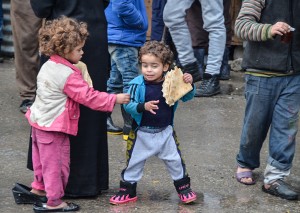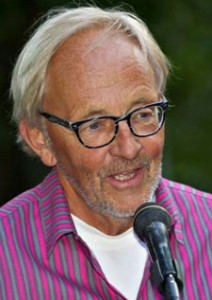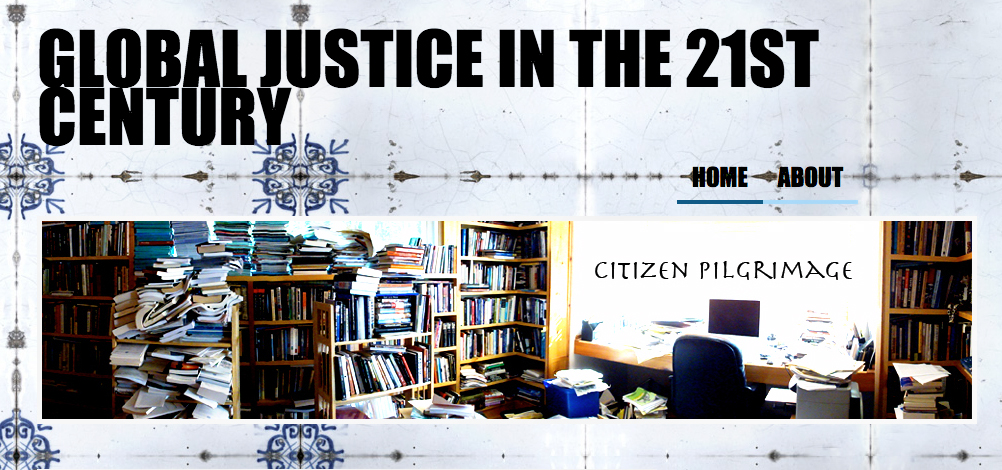Archive for the ‘Turkey’ Category
TFF PressInfo # 405: Keep focus on Aleppo and global dimensions of Syria
By Jan Oberg
Three perspectives on the Syrian conflict formation
The Syrian conflict formation is hugely more complicated than we’ve been told by Western politicians (all mainstream in spite of democratic features) and mainstream/dependent media.
To some there are only internal aspects and it’s called a civil war only. That’s a necessary but not sufficient aspect.
The same goes for the only regional perspective focusing on e.g. the Israel-Palestine conflict, Iran’s, Saudi-Arabia’s, Turkey’s roles and policies.
To others, everything can be explained from the point of view of Western interventionism/imperialism. That’s also a necessary but not sufficient aspect.
To understand anything of the Syrian conflict formation – and there are very many layers, dimensions and participants over the last 100 years – we need all three basic approaches.
But given that Westerners are likely to have been informed by Western media and politicians they are likely to grossly underestimate the third, the Western-global dimension.
And that narrative is likely to be politically correct, to underestimate the nasty sides of the West the last good 100 years in the region and present the West as basically good guys interested in peace, democracy and freedom.
This bias has been reinforced by what is probably the most massive marketing/public relation effort in any modern war – in the style of the fake news story about Saddam’s soldiers throwing out babies from their incubators in Kuwait City. In order words, pure invention/lies/planted stories/rumours and PSYOPs – psychological operations selling unverifiable stories to influence our hearts and mind in a single policy-promoting direction.
The US/CIA involvement in Syria over the last 68 years is well-documented and easy to access – but never pointed out by the intellectually lazy who think it is enough to just point out that everything is the fault of the “dictator” and his “regime”.
The US worked on deliberately de-stabilising Syria years before 2011 (as documented by WikiLeaks and others) when the peaceful demonstrations took place. The Western military support to RIOTs (Rebels, Insurgents, Opposition and Terrorists – most of the latter) was stepped up and while many point out that the US under Obama didn’t “do anything”, it can be argued that NATO countries acted in a variety of ways, too many and wrong-headed ways – none of them serving a politically negotiated solution, peace or democracy in Syria.
The agenda was foreign interference, promoted military foreign presence (aggression) in international law terms and regime change. One more regimes change, that is, after the earlier completely failed ones in Iraq and Libya.
A series of Western NGOs – no longer Non but NEAR-Governmental Organisations – were part and parcel of the policy, increasingly involved and funded by the Western/NATO/Turkish-Saudi-Gulf-Israeli strategy of de-stabilization – such as US-based Avaaz and French foreign ministry manufactured media outfits such as the Syrian Media Incubator Aleppo Media Centre, the SMART News Agency, the media work of the White Helmets which did humanitarian work only among RIOT fighters and relatives (and stole the name of Syrian Civilian Defence from Syria’s own organisation with that name from 1953).
They came in on the civilian media narrative-creating side. And there are others. Since the days of Yugoslavia, think tanks, human rights and humanitarian organisations have been drawn in – and accepted – to serve specific political interventionist agendas in spite of calling themselves independent, not-for-profit etc. This co-optations spells, potentially, the end of civil society as well as of the open and critical debate about governments’ policies.
All of this continued and was stepped up also after it had become clear that the legitimate, peaceful, democratic, anti-govenment opposition in Syria had been completely sidelined and/or overtaken by Syrian militants and foreigners with guns in their hands.
The West did not get cold feet, it stepped up it regime-change policies in all kinds of ways, regrettably also by massive NGO-investments in proxi- and other pro-war campaigns.
No one thought of the consequences for the huge majority of the innocent Syrian people who had never touched a gun, or thought of doing so.
And two more perspectives: Don’t focus on the violence and the evil guy only – it’s war-promoting
No one seems to even have asked the question Read the rest of this entry »
Is Nato obsolete?
By Jonathan Power
February 7th. 2017
So what does President Donald Trump think about Nato? Twice during his campaign he rubbished it publically, saying it was “obsolete”. Yet earlier this month when he met the UK’s prime minister, Therese May, it was all hunky dory. He told her he supported Nato 100%.
There are some – a few – influential people who have argued that Nato is indeed obsolete. One of these was William Pfaff, the late, much esteemed, columnist for the International Herald Tribune. Another is Paul Hockenos who set out his views in a seminal article in World Policy Journal. Their words fell on deaf ears.
President George H.W. Bush saw it differently and wanted to see the Soviet Union more involved in Nato’s day to day work. President Bill Clinton had another agenda – and one that turned out to be a dangerous one, triggering over time Russia’s present day hostility towards the West – to expand Nato, incorporating one by one Russia’s former east European allies.
His successors continued that approach with Barack Obama at one time raising a red rag to a bull by calling for the entry into Nato of Ukraine and Georgia. Read the rest of this entry »
On The Newsline: Comments to Trump, May, US, EU, Turkey and Syria
David Swanson and Jan Oberg
Watch the video «On The Newsline: Trump’s Executive Orders: Trump Dictates The World: May Visits the U.S. & Turkey» uploaded by PressTV on Dailymotion.
Turkish realignment: Prospects amid uncertainty
By Richard Falk
December 3, 2016
In recent months the Turkish President, Recep Teyipp Erdoğan, and his principal advisors have not made it a secret that they are reconsidering Turkey’s relations with neighbors, with the countries of the region, and with leading geopolitical actors.
The Early Agenda of AKP
When the Justice and Development Party (AKP) came to power in 2002 it set about almost immediately to fashion a post-Cold War foreign policy based on the idea that it was time to supersede the Cold War posture of almost total Turkish deference to the United States, especially within NATO and bipolar contexts, and depict a conception of Turkish interests developed in Ankara rather than adhere to Washington’s blueprint. In its early period of national leadership, the AKP seemed to pursue four interrelated international goals:
– resolve the Cyprus conflict;
– give priority to seeking full membership in the European Union (EU);
– improve diplomatic and political relations with Arab World;
– seek continuity in U.S./NATO/EU relations, but with overall independence.
During the Foreign Ministry of Abdullah Gul, reflecting and incorporating some of Ahmet Davutoğlu ideas and his ambitious conception of the proper Turkish international role, this new assertiveness of Turkish foreign policy achieved with impressive results. Turkey’s signature approach of ‘Zero Problems with Neighbors’ (ZPN) was initially seen as the adoption of a regional conflict-resolving perspective, and given early credibility by transforming relations with Syria from hostility to harmony.
NATO:s nya, mer aggressiva kärnvapenpolicy
By Gunnar Westberg
Formuleringen “”NATO:s nya, mer aggressiva kärnvapenpolicy” har två grunder, nämligen de nya vapnen och de nya formuleringarna av doktriner.
Jag föreslår att vi, när vi talar om NATO och kärnvapen, använder formuleringar liknande den första meningen. Vill man förklara sig ger andra meningen ett svar. Men det är under alla omständigheter bra om man har tillgång till nedanstående argument:
De gamla B61 var symboliska vapen. De skulle, enligt ofta upprepade försäkringar, inte användas. De var en pant på att USA inte skulle överge Europa vid ett sovjetiskt/ryskt anfall. USA har föreslagit att dessa vapen skulle tas bort, men öst-europeiska NATO-medlemmar och framför allt Frankrike (!) har starkt reagerat emot.
De nya vapnen är B 61-12. Denna bomb skiljer sig från tidigare versioner av B61 som var ”gravity bombs”, d v s föll fritt från bombplanet. B 61-12 är styrbart och har därför en träffsäkerhet inom 30 m radie. B 61-12 har en variable laddning på 0,3-340kt. Bomben förefaller vara kapabel att penetrera mer än 3 m vanlig jord innan den detonerar. Effekten på djupet blir därför flera gånger större än en bomb av motsvarande laddning skulle ge utan penetrerande förmåga.
B 61-12 blir alltså ett effektivt vapen mot vissa underjordiska mål. Bomberna har sannolikt en plats i nya, ännu inte offentliga doktriner om kärnvapen-användning, i motsats till avskräckning. Read the rest of this entry »
The sky above Turkey has much blue in it
By Richard Falk
August 10, 2016
Prefatory Note
An earlier version was published by Middle East Eye on August 10, 2016. It seems so important at this time for the sake of the future of Turkey that the West look at the country and its political circumstances in a far more balanced way than how the situation has been portrayed since the coup. How to explain this imbalance is another matterthat should be explored at some point, but for now is largely put aside.
Much uncertainty remains in Turkey, but there is enough evidence of positive tendencies to raise a tentative banner of hope. Being a witness to the political atmosphere in Turkey that has emerged after the failed coup of July 15th puts me at odds with the secular consensus in the West, which looks up at the sky and sees only dark, ominous clouds of human rights abuse and autocratic leadership.
What I have experienced and observed so far is quite different, a sky with much blue in it.
There are two opposed, although overlapping, tendencies present that seemed to be responsive to the political priorities that top the post-coup government agenda: sustaining the anti-coup unity by shifting political gears within the AKP leadership circles in the direction of “inclusive democracy” and pragmatism, and with it, a retreat from the polarizing claims of “majoritarian democracy” that greatly intensified after the 2011 national elections and were particularly evident in the clumsy, unacceptable way the Turkish government handled the Gezi Park demonstrations two years later.
The most important concrete embodiment of this post-15 July move toward inclusiveness has been a series of initatives intended to create a common front between the three leading political parties in the country, including the CHP (secular mainstream) and MHP (nationalist rightest) opposition parties.
This has been reinforced by several other developments, Read the rest of this entry »
Too many American nuclear bombs – also in Turkey
By Jonathan Power
July 26th 2016
The Incirlik air base in southeast Turkey- from which U.S. pilots launch bombing raids on ISIS forces in Syria – is home to about 50 B-61 hydrogen bombs. That makes it NATO’s largest nuclear storage facility.
Each bomb has a yield of up to 170 kilotons, nearly a dozen times more powerful than the weapon that destroyed Hiroshima. The bombs are stored in underground vaults within aircraft shelters that in turn are protected by a security perimeter.
Last week Incirlik was in the headlines because it appears it was one of the command centres of the attempted coup, meant to topple President Recep Tayyip Erdogan.
After the coup had been put down the commander of Incirlik was arrested and charged with complicity in the overthrow attempt.
Jonathan Marshall in Consortium News, who has been researching this year the inner workings of the base, reports, “The security of the bombs is premised on them being defended by loyal NATO forces. In the case of Incirlik that loyalty proved uncertain at best. Power to the base was cut after mutinous troops used a tanker plane from the base to refuel F-16s that menaced Ankara and Istanbul”.
He goes on in his latest report to observe, “One can easily imagine a clique of Islamist officers in a future coup seizing the nuclear bombs as a bargaining chip with Ankara and Washington or, worse yet, to support radical insurgents in the region.”
Jeffrey Lewis, a nuclear proliferation expert at the Middlebury Institute of International Studies at Monterey, asks, “Does it seem like a good idea to station American nuclear weapons at an air base commanded by someone who may have just helped bomb his own country’s presidential palace?” Read the rest of this entry »
Narrating Turkey at a time of national crisis
By Richard Falk
A night before the attempted coup of July 15th, in conversation with an elegant secular business leader and permacologist in the seaside town of Yalikavak I was surprised by the intensity of her negativity toward the government, expressed with beguiling charm. She insisted that Turkey had hit rock bottom, that things in the country could not get worse. I felt speechless to respond to such sentiments that struck me as so out of touch with the reality of Turkey.
This woman lives in a beautiful, secluded country house nearby, enjoys an extraordinarily successful career, is associated with a prominent Turkish family, possesses an engaging personality by any measure, and from all appearances lives a harmonious and satisfying modern life of comfort, good works, and human security.
And yet she is totally alienated by the Turkish experience of Erdoğan’s prolonged leadership, which she alternatively describes as ‘autocratic’ and ‘Islamic.’ I mention her as the foregrounding of the typical mindset encountered among Turkish secular elites, displaced from their positions of control that lasted until the Kemalist hegemony began to weaken, and an outlook that confines political discussion to enclaves of out of touch likemindedness.
When I politely demurred during our dinner, suggesting that while there were justifiable criticisms of the AKP patterns of governance and of Erdoğan’s political style, especially since 2011, Turkey when compared with other countries in the region and its own pre-AKP past, and taking some account of a variety of challenges, still offers the region a positive example of what can be achieved by an energetic and ambitious emerging economy under what had been until recently generally stable political conditions.
There are heavy costs of various kinds that should be acknowledged along side this somewhat affirmative picture—human rights have been abridged, journalists and academics suppressed who voice strong public criticisms of Erdoğan, and the Turkish state that he leads.
There have also been a variety of charges of corruption and contrary well grounded charges of a ‘parallel government’ operating under the secretive authority of the Hizmet movement led by ‘the man in Pennsylvania,’ Fetullah Gülen, a mysterious Muslim cleric who preaches a moderate message. He is alleged to be the mastermind of the subversion of the Turkish state, and is accused by Erdoğan as having orchestrated the failed coup, and on this basis, Turkey has formally demanded his extradition to face criminal prosecution.
Arriving in Istanbul in the afternoon of July 15th with the expectation of participating in a conference the next morning held under the auspices of Koç University on the theme “Migration and Securitization of Europe: Views from the Balkan Corridor.” Listed in the program as the keynote speaker I felt quite nervous as to whether my prepared remarks captured the intended spirit of the event, but I will never know as an immediate personal impact of the attempted coup was a phone call to our hotel room at 2:00 AM telling us that ‘unfortunately’ it was necessary to cancel the conference…
Turkey’s coup – One more problem for NATO
By Jan Oberg
Commenting on Russia Today
July 16, 2016
Is ISIS on the wane?
By Jonathan Power
Within a matter of days a self-appointed ISIS “lone wolf”, Omar Mateen, with no actual links to home office Isis has created mayhem in Orlando, Florida, with his killing of 49 people in a gay club, and the Iraq army has pushed Isis troops out of most of the important city of Falluja.
Maybe it is an exaggeration to say that ISIS is on the run its bailiwicks of Iraq and Syria but it is certainly taking very bad hits. Two years after sweeping through northern Iraq and capturing the oil city of Mosul in 2014 they are now on the defensive. ISIS has lost nearly half of the Iraqi territory it held. (i.e. an area about half that of the UK). It has lost much of its oil infrastructure.
It is taking lots of casualties. In Syria it is fighting on two contradictory fronts – the regime in Damascus, supported by Iran and Russia and against the non-Islamist rebels, supported by the US and the Arab states.
Meanwhile the flow of foreign fighters on which it has depended is slowing up and large numbers are returning home. Funding is drying up.
This indeed is why Mateen, the lone wolf, is so important to ISIS. ISIS spokesman, Abu Muhammad al-Adnani, has asked ISIS sympathisers to stay where they are. “The smallest action you do in the heart of [your] land is better and more enduring to us than what you would do if you were with us.”
Is this a switch in tactics? We do not know yet.
What we do know is Read the rest of this entry »






